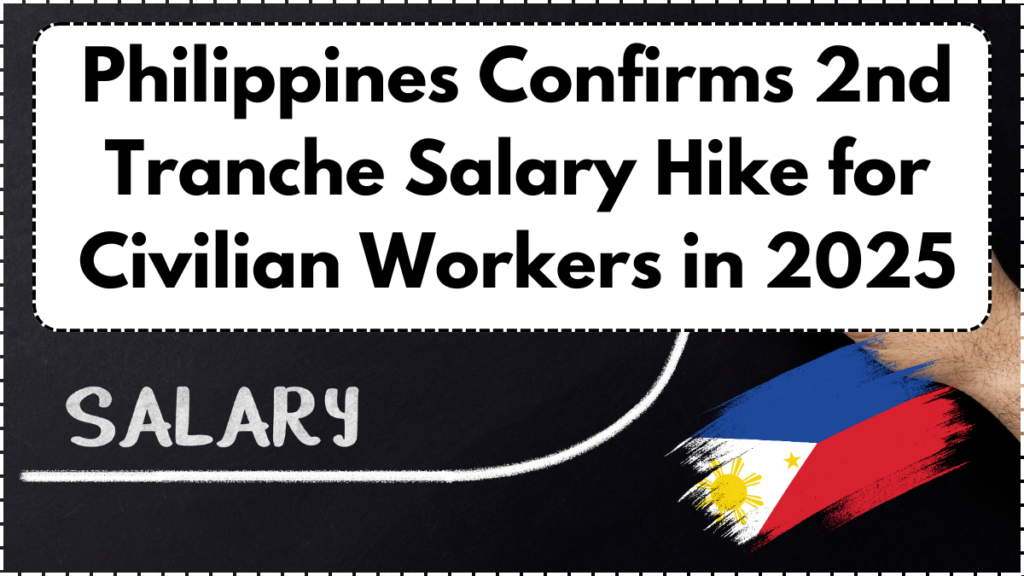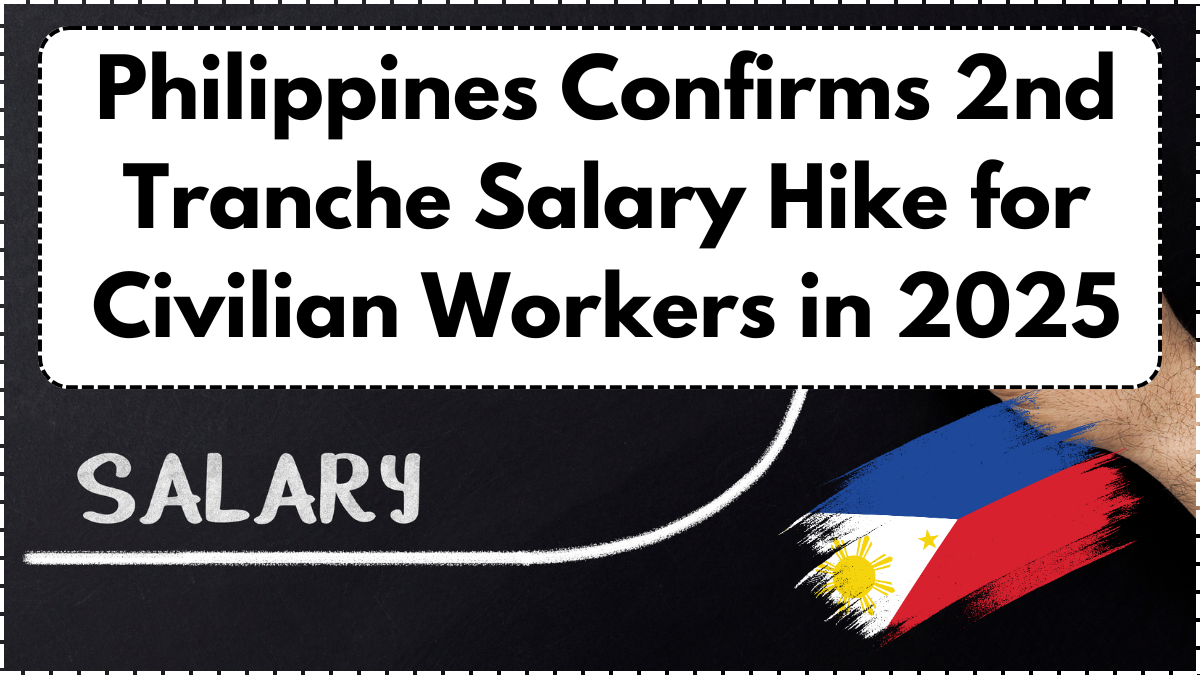Starting April 2025, the Philippine government is rolling out the second stage of salary adjustments for civilian employees. This salary increase is mandated under Executive Order No. 64, signed in August 2024. The Department of Budget and Management (DBM) is overseeing the implementation to enhance the compensation of public sector workers, reinforcing financial stability and improving overall service quality.
This initiative is part of a broader reform strategy aimed at making government salaries more competitive, attracting skilled professionals, and retaining talent within the public sector.

Understanding National Budget Circular No. 597
The National Budget Circular No. 597 serves as the official reference for implementing the second tranche of salary hikes under EO No. 64. It outlines:
- The revised salary structures
- The agencies and employees eligible for the increase
- The mechanisms for proper implementation
The salary adjustments take effect retroactively from April 2025, ensuring that eligible employees receive their updated pay based on the prescribed schedule.
Who Will Benefit from the Salary Increase?
The following government employees will receive salary adjustments:
- Civilian personnel in the Executive Branch
- Employees in the Legislative and Judiciary departments
- Workers in Constitutional Commissions and Offices
- Faculty and staff at State Universities and Colleges (SUCs)
- Employees of Government-Owned and Controlled Corporations (GOCCs) not covered by EO No. 150 or the GOCC Governance Act of 2011
By covering a broad range of employees, the government aims to improve public sector employment conditions and encourage excellence in service delivery.
Who Is Not Included in the Salary Increase?
Certain groups are excluded from this tranche of salary adjustments, including:
-
Military and uniformed personnel under a distinct pay structure
-
Employees of agencies not covered by the Revised Compensation System
-
Independent contractors, consultants, and others without formal employer-employee relationships
-
Individuals paid through non-personnel service funds
These exclusions ensure that only employees covered under the structured salary scale receive adjustments, while other sectors may have their pay reviewed through separate directives.
Sources of Funding for the Salary Hike
The salary increase will be financed through different sources, depending on the type of government entity:
| Entity Type | Funding Source |
|---|---|
| National Government Agencies | Miscellaneous Personnel Benefits Fund (MPBF) & General Appropriations Act (GAA) 2025 |
| GOCCs | Corporate Operating Budgets |
| Local Government Units (LGUs) | Subject to DBM-issued guidelines |
National government employees and GOCC workers have defined funding channels, whereas LGUs will need to follow a separate DBM directive regarding their salary adjustments.
What Employees Should Expect
Each employee’s salary adjustment will depend on several factors, including:
- Current salary grade within the government pay structure
- Years of service and experience
- Department or agency classification
Government workers are encouraged to contact their HR and finance offices for specific details on their revised compensation under EO No. 64.
Impacts of the Salary Increase
This adjustment brings multiple benefits, such as:
- Greater financial security for government employees, helping them cope with inflation and rising costs.
- Stronger workforce retention, reducing employee turnover to private corporations or overseas opportunities.
- Increased motivation and job satisfaction, leading to improved public service efficiency.
By ensuring competitive salaries, the government aims to sustain a dedicated and high-performing civil service.
How This Aligns with Civil Service Reforms
This salary adjustment is part of a wider government initiative to modernize the civil service. The objectives of these reforms include:
- Offering competitive pay to attract and retain skilled professionals
- Enhancing efficiency and accountability within government institutions
- Providing structured career growth opportunities for public sector employees
By prioritizing fair compensation, the administration seeks to build a more competent, motivated, and professional workforce dedicated to national development.
Conclusion
The second phase of salary adjustments under EO No. 64 reinforces the Philippine government’s commitment to improving compensation for civil servants. By ensuring structured salary hikes, the initiative supports economic stability for government employees, promotes talent retention, and strengthens the overall efficiency of public service. Moving forward, sustained efforts in civil service reforms will further enhance employment conditions and elevate the standards of governance.
Frequently Asked Questions (FAQs)
1. When will the second salary increase be implemented?
The salary increase takes effect in April 2025, with retroactive adjustments from the first working day of the month.
2. Who is eligible for the salary hike?
Eligible employees include those from the Executive, Legislative, and Judiciary branches, as well as workers in constitutional offices, SUCs, and GOCCs (not covered by EO No. 150).
3. What are the funding sources for the salary adjustments?
Funding comes from MPBF & GAA (for national agencies), corporate operating budgets (for GOCCs), and separate DBM guidelines (for LGUs).
4. Why are military personnel not included in this salary increase?
Military and uniformed personnel are covered under a different compensation system, with separate policies governing their salary structure.
5. How can employees check their updated salary?
Employees should consult their HR or finance department to obtain updated salary details based on EO No. 64.
For More Information Click Here
Pari is a passionate writer known for captivating stories that blend imagination and reality. Inspired by travel, history, and everyday moments, Pari crafts narratives that resonate deeply with readers.
